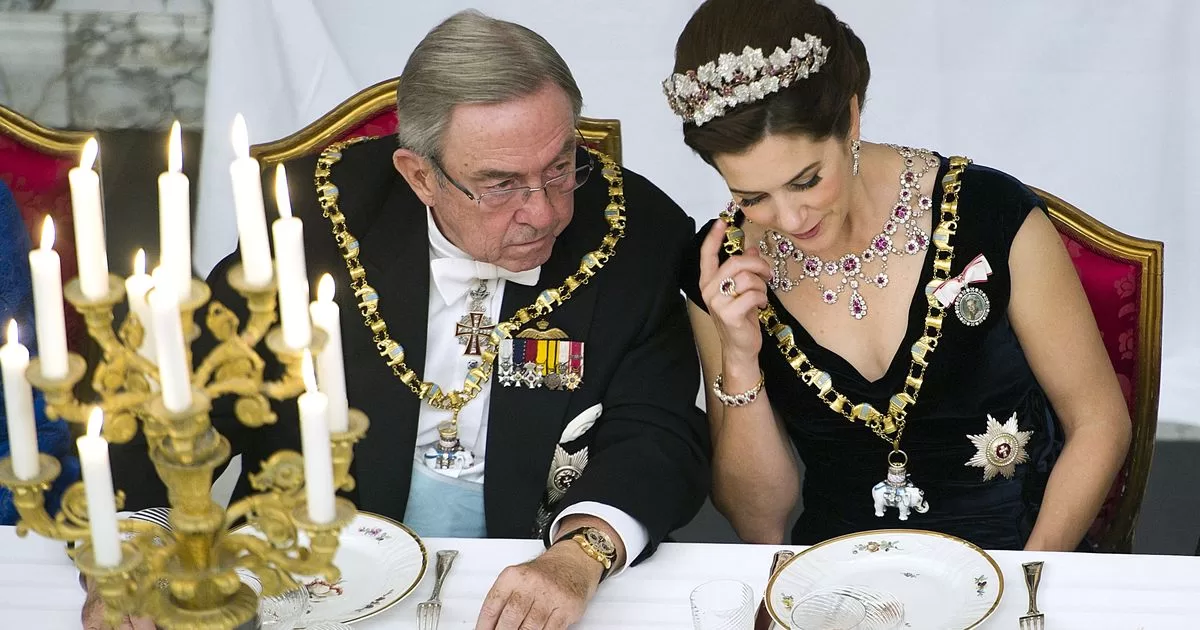PARS.- Before Margaret II of Denmark, who will renounce the throne on January 14 after 52 years on it, a list of some remembered abdications of sovereigns from around the world since that of King Edward VIII of England in 1936.
Emperor Akihito (Japan)
30 years after arriving at the Chrysanthemum Throne in 1989 by succeeding his father Hirohito, the 125th emperor of Japan Akihito, who suffered health problems, gave his place to his son Naruhito on April 30, 2019, in which he was the first imperial abdication since 1817.
This resignation was not provided for in the 1947 Constitution, so it had to be the subject of an exceptional law. Akihito, now 90 years old, has since held the title of honorary Emperor Joko Heika.
King Juan Carlos (Spain)
Engulfed in the scandal of his hunting trips to Africa and in a matter of embezzlement of funds, the Spanish King Juan Carlos, who was then 76 years old, abdicated on June 18, 2014 in favor of his son, who became Felipe. SAW.
For a long time he was much loved in his country for having contributed to consolidating the return to democracy and blocking the coup d’état of 1981. Juan Carlos was proclaimed king after the death of the dictator Franco in November 1975.
He is now persona non grata in Spain and has lived in exile in the United Arab Emirates since 2020.
A “tradition” in the Benelux countries
In the three European constitutional monarchies of the Benelux (Netherlands, Belgium and Luxembourg), abdications are frequent.
Beatrice, queen of the Netherlands since 1980, renounced the throne at the age of 75 on April 30, 2013 and handed it over to her son William Alexander. Before her, her mother Juliana also abdicated when she turned 71, as did her grandmother Guillermina in 1948, after 58 years on the throne.
In Belgium, Albert II abdicated at the age of 79 on July 21, 2013, National Day. By succeeding his brother Baldwin 20 years earlier, he gave way to his eldest son, Philip. Albert II and Baldwin’s father, Leopold III, also abdicated in 1951 after a long crisis linked to his controversial behavior during World War II.
In Luxembourg, Grand Duke John, who died in 2019, abdicated in 2000 in favor of his son Henry. Sovereign since 1964, he succeeded his mother Charlotte, who also abdicated.
Benedict XVI, “Supreme Pontiff”
The German Cardinal Joseph Aloisius Ratzinger, Pope since April 19, 2005, under the name Benedict XVI, announced his resignation in 2013. It was the first time that a pontiff had resigned since Gregory XII in 1415.
Pope emeritus, he retired to the Mater Ecclesiae monastery, where he led a life of silence and prayer until his death on December 31, 2022.
Norodom Sihanouk (Camboya)
He was king of Cambodia twice (1941-1955 and 1993-2004) and abdicated twice. The first time in favor of his father.
Capital figure of his country, venerated as a god-king, he was for more than 60 years, alternatively and sometimes simultaneously, king, prime minister (nine times), head of state (twice) and president.
When he abdicated for the second time in 2004, he was succeeded by his son, Prince Norodom Sihamoni. The king-father died on the eve of his 90th birthday in 2012.
Edward VIII (United Kingdom)
King of the United Kingdom for only a few months, Edward VIII had to abdicate in December 1936 in order to marry Wallis Simpson, an American divorcee, which avoided a serious constitutional crisis. He was succeeded by his younger brother Albert, father of Elizabeth II, who was crowned George VI in May 1937.
After his abdication, he became Duke of Windsor and lived in France, where he died in 1972, aged 77.
FUENTE: AFP



